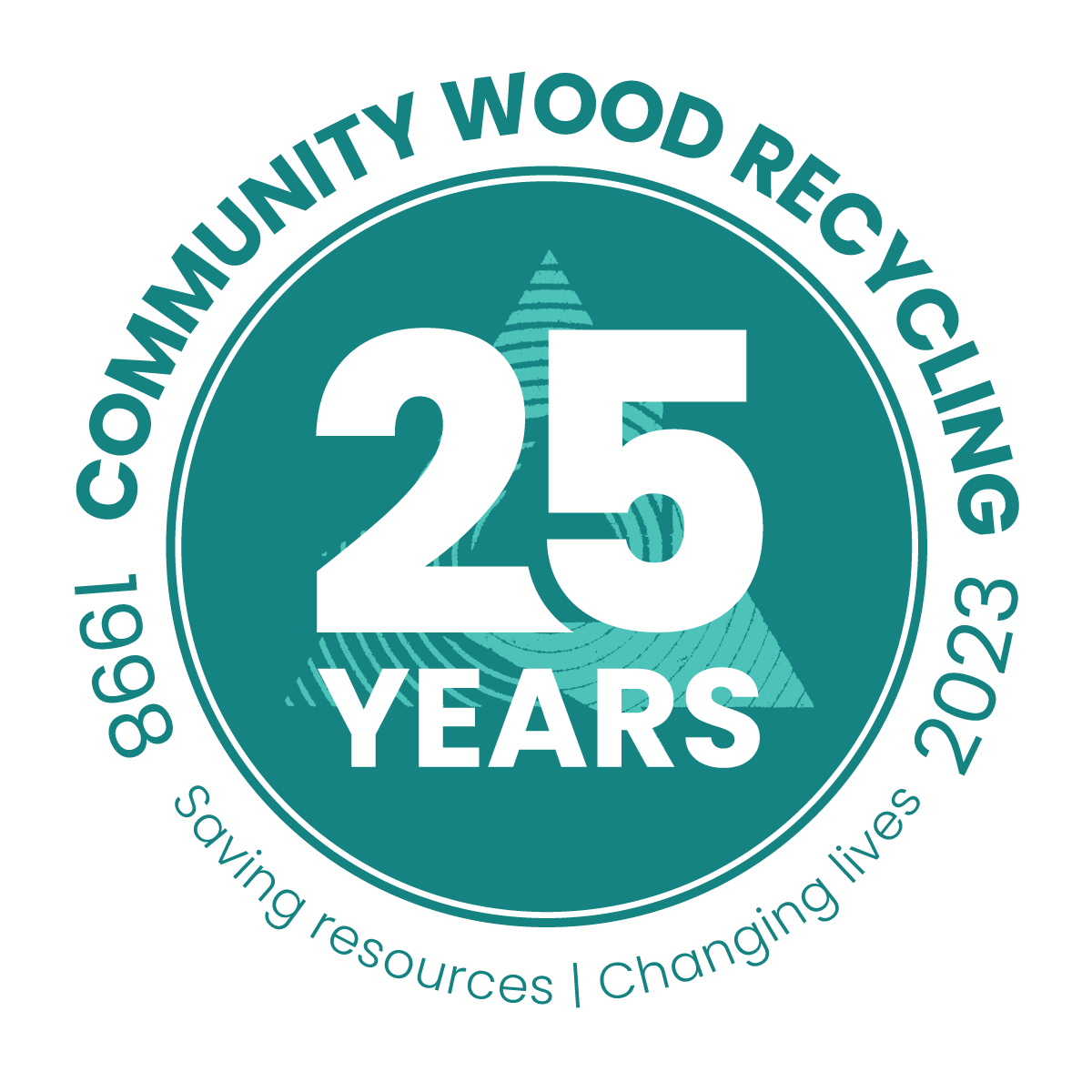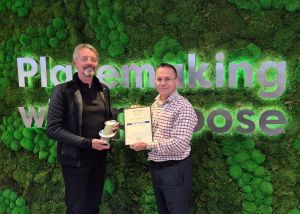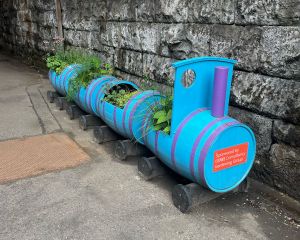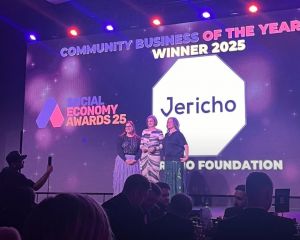In this issue:
Featured Story
The Value of Making:
Why Hands-On Work Matters
Every piece of timber we collect tells two stories: one about saving resources and one about changing lives. Our waste wood collection service keeps thousands of tonnes of timber out of the waste stream, reducing carbon emissions and supporting a circular economy. But just as importantly, that wood becomes the foundation for social impact, creating opportunities for people to learn, work, and thrive.
There’s something extraordinary about working with wood. Every piece has a history – marked by knots, grain, and the life it once held – and when it arrives at our wood recycling projects that story continues. Discarded timber becomes something useful and beautiful, and people discover skills, confidence, and purpose. It’s a transformation that changes lives as much as it changes materials. We celebrate this all year round but at Christmas, that spirit of renewal feels even more important, as we create gifts and decorations that can be treasured for years ahead.
In our workshops the power of what we do comes together. Here you can find a sense of purpose as trainees build their skills – in one corner a group who are new to the project are making simple bird boxes, using templates to cut timber to size and hammering together basic joints, in another someone who once spent nights on the streets is making a boardroom table for a high-profile company, using the skills he has built up over the years as he moved from supported volunteer to valued staff member with a career, a home and a purpose.
This kind of work matters. Building skills for our future isn’t just about IT. For many people, sitting at a desk in an office is not the right environment to flourish. They may already have had very negative experiences at school, they may find that their talents lie in the practical rather than with words or numbers.
When you work with timber, progress is visible. Wood is a unique material in the way it can be shaped and turned into things with human hands. The work is physical, focused, and collaborative. It offers structure without rigidity, and learning without pressure working with rather than against flaws and irregularities. For people who’ve been excluded from traditional employment or education, our workshops are often the first place they’ve felt capable and valued.
We need to broaden our understanding of what green skills look like. They include the ability to repair, reuse, and work with materials in ways that reduce waste and extend life. These are skills that support sustainability, but just as importantly they support people, helping them build confidence, routine, and a sense of contribution.

Inclusion is vital to a resilient and sustainable economy. When we design training environments that work for different kinds of learners, we open up pathways for people who’ve been left out and become isolated. And crucially, we can do it by creating products that have real commercial value, replacing resource-heavy mass produced items and bringing beautiful hand crafted products into homes and workplaces.
The future of work will be shaped in many places. But in workshops like ours, we think it’s already happening, with reclaimed timber at its heart. Across the country our workshop trainees will be able to give their family and friends hand crafted gifts they have made with pride.
Steve, volunteer mentor at New Life Wood, explains what working in our network has meant to him:

Network Spotlight: Solo Wood Recycling

Collaboration and Regeneration in Croydon
Solo Wood Recycling is a Croydon-based social enterprise, working to save wood for reuse and bring affordable timber to the local community. With a strong interest in urban sustainability, the team enjoy collaborating with organisations to bring recycled wood into projects for the benefit of the people of South London and beyond.
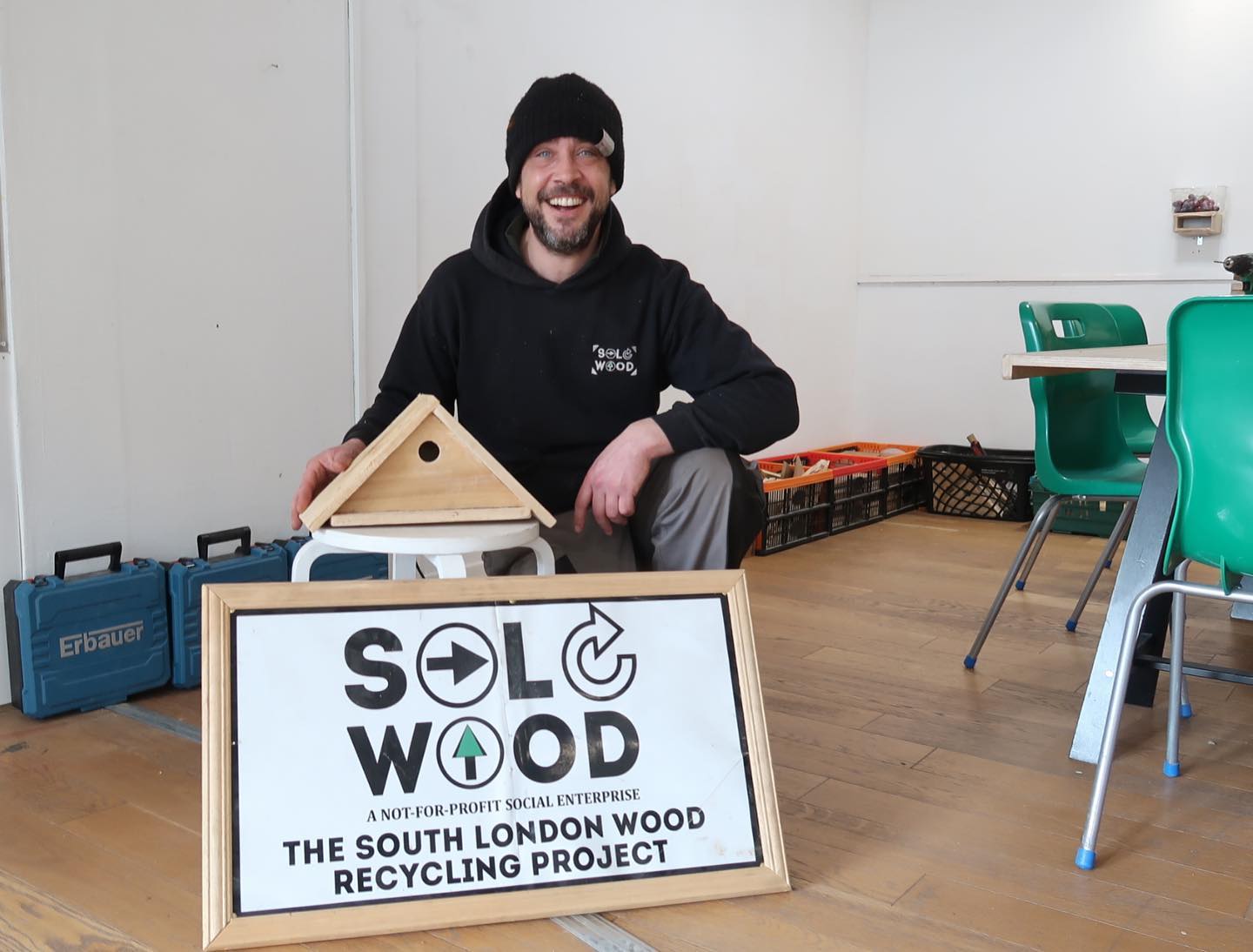
In July, the team partnered with Opportunity Kensington to help transform the gardens at St Mary Abbots School into a thriving habitat for pollinators. The project, part of the Pollinator Pathmaker initiative, brought together reclaimed materials, ecological design, and community involvement to reimagine what urban green spaces can be.
Solo supplied live edge timber for the installation, framing the garden beds and supporting the soil structure. The wood, sourced from their workshop, gave the project a strong foundation, both physically and environmentally. It’s a clear example of how reclaimed materials can be used creatively to support biodiversity and reduce waste in urban settings.
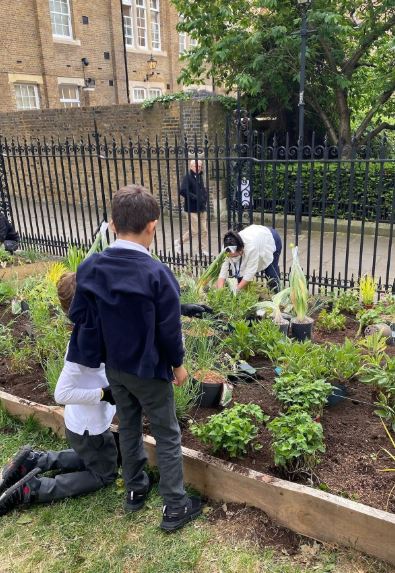
The Pollinator Pathmaker concept, originally developed by artist Alexandra Daisy Ginsberg, invites us to design gardens from the perspective of insects. Pollinators experience colour, space, and seasonality differently from humans, and this project encourages us to consider their needs in how we shape our outdoor environments. The DIY Edition launched in July in conjunction with the Design Museum’s ‘More than Human’ exhibition, which features a new 8-metre Pollinator Pathmaker tapestry.
More than 150 children from St Mary Abbots School and Tadpoles Nursery took part in planting the garden, learning about pollination, ecology, and the role of insects in sustaining life. The result is a space that supports biodiversity, engages young people, and demonstrates how collaboration between social enterprise and local organisations can lead to meaningful environmental outcomes.
News From Our Network
Sustainability News For You
Want to get involved?
There are all kinds of ways to support our work while getting a great deal. If you work at a business which creates a lot of wood waste, you can use our wood waste collection service. If you’re interested in timber, wooden products, or volunteering, get in touch with your local enterprise to find out more.
